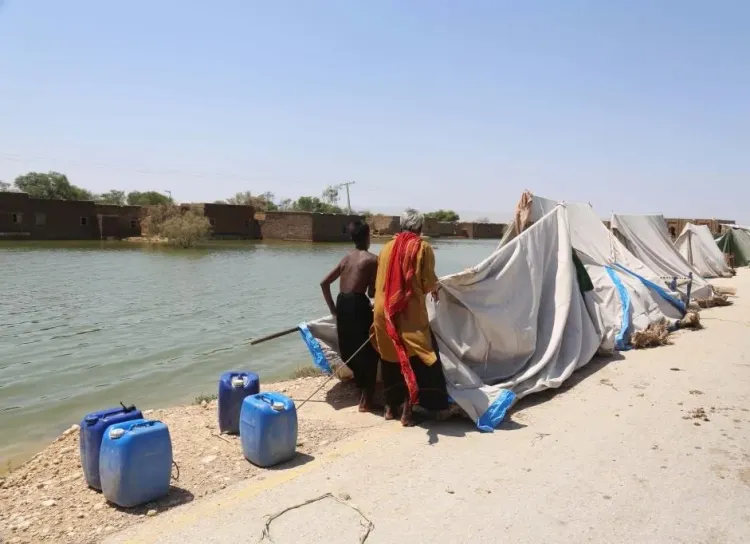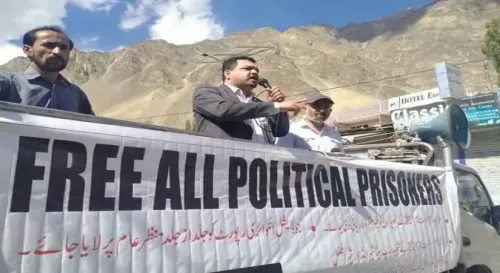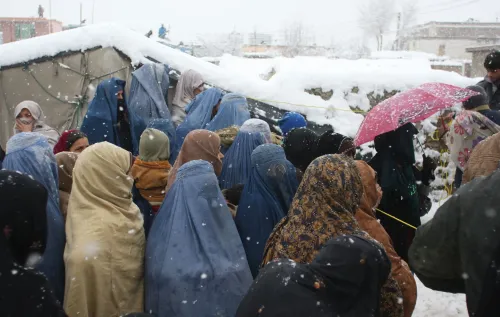How Are Floods Impacting 4.2 Million in Pakistan's Punjab Province?

Synopsis
Key Takeaways
- Over 4.2 million affected by floods in Punjab.
- Approximately 2.8 million displaced from their homes.
- Significant damage to health and education infrastructure.
- Political leaders criticized for politicizing relief efforts.
- Need for unified action in humanitarian response.
Islamabad, Sep 27 (NationPress) Over 4.2 million individuals have been impacted by the recent monsoon floods in Punjab province of Pakistan, with the southern districts experiencing the most severe effects, as detailed in a rapid needs assessment published by the United Nations Office for the Coordination of Humanitarian Affairs (UNOCHA) on Friday.
The evaluation, carried out in collaboration with the provincial government from September 8 to 18, assessed nearly 2,000 villages across 18 flood-affected districts.
The findings revealed that approximately 2.8 million people have been displaced, around 161,700 homes have been damaged, and significant harm has been inflicted on health and education facilities.
As reported by Pakistan's National Disaster Management Authority, approximately three million people were rescued or evacuated nationwide from June 26 to September 19. The floods led to damage of 12,559 houses and the loss of 6,509 livestock.
Pakistan's Prime Minister Shehbaz Sharif previously announced an increase in ex-gratia compensation for families who lost loved ones in the floods, raising the amount from one million rupees to two million rupees (approximately 7,000 US dollars), as reported by Xinhua news agency.
Meanwhile, Bilawal Bhutto-Zardari, Chairman of the Pakistan People's Party, and Maryam Nawaz, Chief Minister of Punjab province, have faced significant backlash for politicizing flood relief efforts during one of the most devastating seasons in the country’s history rather than uniting to assist the millions affected.
According to the prominent Express Tribune, the essence of this political dispute revolves not around the most effective aid mechanisms, but rather around claims of credit and exerting dominance.
“Bilawal has persistently maintained that the Benazir Income Support Programme (BISP) is the 'only means' for immediate assistance, labeling any dismissal of it as an 'irresponsible attitude' towards flood victims. However, Maryam has rightfully questioned how such a large sum could be distributed via BISP when typical payments through the system are merely Rs 10,000 - the Punjab CM aims to distribute 100 times that amount to flood victims,” the editorial highlighted.
“Conversely, the CM's reply has also been decidedly partisan. Even if we accept her claim that BISP is a 'very simplistic solution', numerous statements during her recent press conference appeared to be sharp, unhelpful criticisms tailored for media sound bites. In such times, a competent leader should set aside personal pride and prioritize the nation's welfare. Those suffering in relief camps do not care if Maryam holds her head high or seeks foreign aid; they simply need food, shelter, and medicine,” the editorial further noted.










